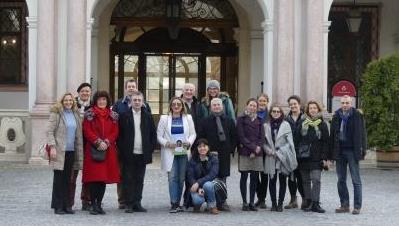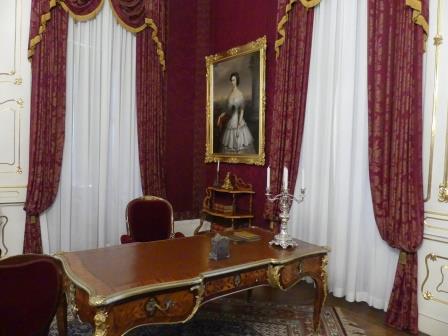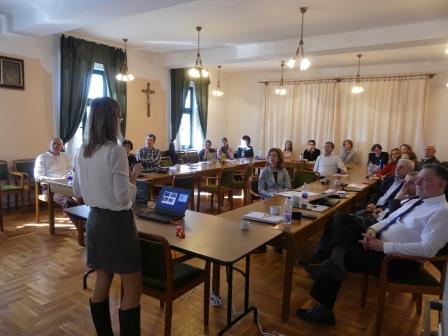During the reports from the alumni associations in the evenings, it became clear how difficult it is to motivate alumni to become actively engaged in the activities of the alumni associations in addition to their scientific work, necessary side jobs and their responsibility for their families. Therefore, the conferences, co-financed by Renovabis to a considerable extent, offer an additional motivation.
Apart from the conference, there was a common mess celebrated together in the Pilgrimage Church in Mariabesnyö. The cultural and historical highlights of the conference were the visit to the city of Budapest at night and of Grassalkovich Palace, where the Empress Elisabeth of Austria (Sissi) spent a lot of time. At the end of the conference, the participants enjoyed a wine tasting with typical Hungarian wine and a traditional goulash.
Following the conference, the Head of the Eastern Europe Department, Markus Leimbach, and Peter Varga from the Hungarian Partner Committee had the opportunity to hold talks with the Secretary of the Hungarian Bishops’ Conference, Dr Tamas Toth, the principal of the Pázmány Péter Catholic University, P. Kuminiec, as well as with the vice deans of the Faculty of Law and Humanities and representatives of the international office. The conversations served not only to inform about the conference and work of KAAD in Hungary, but also to discuss possibilities of cooperation.
All in all, the conference was characterized by an open and friendly atmosphere with vivid discussions on quite diverse topics. Thanks to the European diversity of the participants, the conference promoted further networking, not only on a personal, but also on an academic level. A proposal for a research project on multi-perspectival historiography will be further pursued. A thematically structured publication with selected presentations will be another fruit of the conference.






